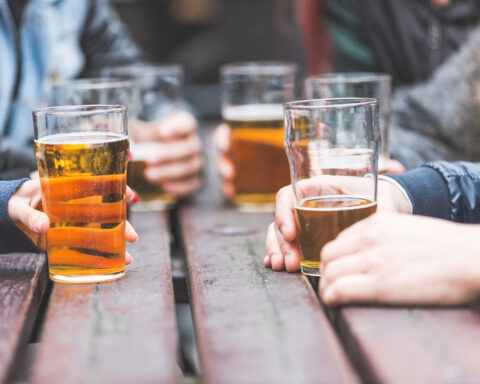What if improving your diet could add over a decade to your lifespan? New research reveals the incredible impact daily food choices have on longevity and disease risk. Studies show that simply eating more vegetables, fruits, whole grains, and less processed meat could extend life by 13 years on average. But with so many conflicting theories on what, when, and how to eat, how can you unlock the secrets to eating for longevity?
"People can add up to 13 years of life by following a diet that has more vegetables, fruits, whole grains, and nuts," said Dr. Leana Wen, an emergency physician and adjunct associate professor of health policy at George Washington University, citing a 2022 study in the British Medical Journal. Another notable 2023 study in Nature estimated over ten years of increased life expectancy from optimized diets - largely by cutting sugary beverages and processed meats while upping whole grains, nuts, and fruits. Researchers have meticulously followed the nutrition and health information of more than 100,000 American and European participants for over 30 years.
This study has identified a correlation between adopting good eating habits and a 20% decrease in the risk of premature mortality. Individuals who consumed a higher amount of whole grains, fruits, vegetables, nuts, and legumes were shown to have a reduced risk of mortality from cancer, cardiovascular disease, and respiratory and neurological conditions, as stated by the researchers," Wen elaborated. The science appears clear - improving food choices throughout life can lead to tangible lifespan gains, lower risks of numerous diseases, and added years of health span.
So what should your daily diet actually include at each meal?
"I encourage people to increase their consumption of whole foods that are minimally processed," Wen suggested, recommending leafy green vegetables, fresh fruits, and whole grain foods as primary building blocks for every plate. "Some nutrition experts also advise that people think about having a food rainbow, meaning an assortment of fruits and vegetables in a wide variety of colors and ingredients," Wen said. According to studies, legumes like beans and lentils provide fiber, protein, and key nutrients that support microbiome balance, heart health, and stable blood sugar. According to the latest findings, nuts like walnuts, pistachios, and almonds contain good fats, plant-based protein, and other compounds that benefit lifespan.
Fish and lean, minimally processed meats like salmon filets, chicken breasts, and ground turkey also offer high-quality protein. However, according to Wen, studies have increasingly linked highly processed versions like deli meats and hot dogs with negative health outcomes in the long run. She recommends whole food choices like wild-caught salmon and roast chicken dishes over ultra-processed options like chicken nuggets or sausage links, which often contain preservatives, excess sodium, and chemical additives—all connected to worse health and disease risks.
While improving diet quality, research clearly shows that some items deserve special limits due to outsized potential harms. These include sugar-sweetened beverages like sodas and energy drinks, where studies indicate excess intake can directly counteract the benefits of an otherwise healthy eating plan. Regular consumption of ultra-processed snack foods like chips, candies, cookies, and other baked goods has also shown alarming links to higher long-term mortality.
One recent study involving more than 11,000 adults aged 45 and older tied high ultra-processed food intake to a 31% elevated mortality risk over eight years of follow-up compared to those who consumed the lowest amounts. Replacing these popular indulgences with whole food choices provides the biggest opportunity to move the needle on your personal health outlook based on the best evidence right now, Wen argued.
"It's helpful for people to think not just about how to cut out these foods but about what they will replace them with," she noted. Soda drinkers could switch to sparkling water, herbal iced tea, or small amounts of diluted fruit juice instead. Chips and salty snacks can be traded for nuts, air-popped popcorn, fresh-cut vegetables, meats, and cheeses for just a few better-for-you substitutions. Taking an active, experimental approach helps cement new habits over time more than vague restrictions or bans on entire food groups that are difficult to follow long-term for most.
Beyond watchful ingredient lists and broad food groups to embrace, Wen says emerging nutrition science is beginning to shed light on optimal meal timing strategies, too - with some key lifestyle trade-offs to consider. Should you be snacking between meals or fasting for longer periods daily instead? Research remains mixed so far, with evidence on both sides. Some findings indicate benefits from consistent light noshing, with planned small meals and snacks preventing urgent overeating later on, leading to poor impulse choices. However, other data reveals that restricting eating to set mealtimes allows our hunger and satiety cues to regulate intake effectively for health.
According to Wen, there are reasonable arguments in both directions here. The right snacking or intermittent fasting approach depends on your eating behaviors and struggles. For example, those who find themselves ravenously hungry by dinner time without small snacks clearly suffer and tend to binge or make rushed, unhealthy choices. So adding a nourishing mid-afternoon snack makes sense in that situation, Wen suggested. However, for others who reliably over-snack, finding satisfaction in structured meals without grazing could be advantageous. There is no universally ideal eating frequency across the board, with individual factors at play.
Wen universally recommends avoiding heavy late-night meals in favor of finishing dinner at least two hours before bedtime. "Doing so could increase heartburn symptoms and interfere with sleep," she warned. She also urges thoughtfulness around how we eat - not just nutritional content. Are meals usually scarfed down in a hurry on the go? That scenario tends to pair with excessive processed food reliance for speed and convenience. Do you find yourself stress eating or making impulse snack choices when anxiety strikes? Or eating large portions alone while distracted by screens?
"It's important to examine not just what and when people are eating but also how," Wen suggested. She recommends being more deliberate about mealtimes whenever possible - planning sit-down menus, you look forward to, putting away devices to focus on flavors, chewing slowly, and stopping eating before you feel completely full. Consider sharing meals with family or friends instead of eating solo. This allows you to gain positive influences from their food choices as well as valuable social connections. According to studies, both will support healthy decision-making.
Wen concluded, "Food, of course, is not the only factor that determines people's health and well-being. Other factors, including exercise, sleep, stress, and underlying medical conditions, also play a major role." But seen clearly now, your individual diet and nutrition choices can and do make a substantial difference in health outcomes, disease susceptibility, and longevity over the average lifespan. "There are day-to-day decisions about what we are eating, when and how that can make a big difference in health outcomes," Wen reiterated. Small steps that add more whole foods, plants, lean proteins, legumes, and healthy fats benefit your body incrementally with each meal while limiting excess ultra-processed foods and sugars contributes over the years, too. It truly matters not only what you eat but also when and how you eat it.

 Trump has begun another trade war. Here's a timeline of how we got here
Trump has begun another trade war. Here's a timeline of how we got here
 Canada's leader laments lost friendship with US in town that sheltered stranded Americans after 9/11
Canada's leader laments lost friendship with US in town that sheltered stranded Americans after 9/11
 Chinese EV giant BYD's fourth-quarter profit leaps 73%
Chinese EV giant BYD's fourth-quarter profit leaps 73%
 You're an American in another land? Prepare to talk about the why and how of Trump 2.0
You're an American in another land? Prepare to talk about the why and how of Trump 2.0
 Chalk talk: Star power, top teams and No. 5 seeds headline the women's March Madness Sweet 16
Chalk talk: Star power, top teams and No. 5 seeds headline the women's March Madness Sweet 16
 Purdue returns to Sweet 16 with 76-62 win over McNeese in March Madness
Purdue returns to Sweet 16 with 76-62 win over McNeese in March Madness








